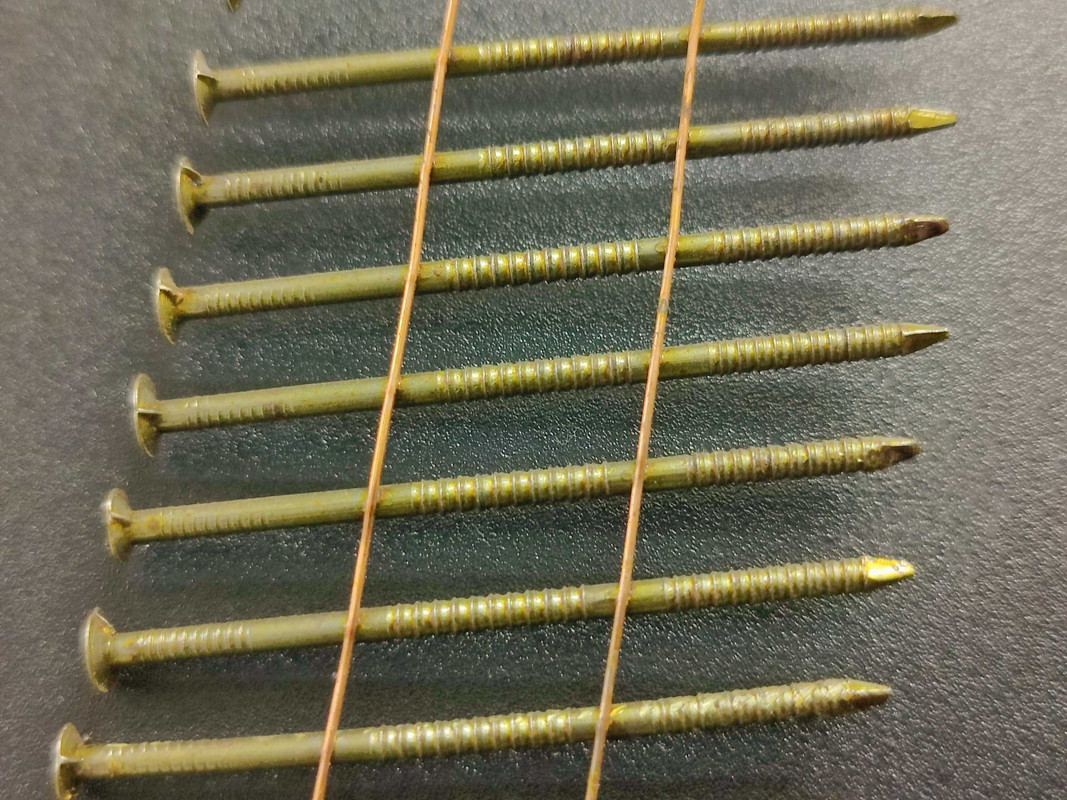
Ring shank
Coil Nails in particular can bend easily and can be feeded into a gun without any difficulty.
These High Quality Coil Nails in smooth ring and screw shanks Our Coil Nails can be customized
as per our customers specifications.
Size :
1" - 3.5"
Diameter :
2mm - 3.2mm
Package method :

Frequently Asked Questions
What Is a Ring Shank, and How Does It Differ from Other Shank Types?
A ring shank is a type of nail shank characterized by circular rings along its length. These rings provide additional friction and holding power, making it more difficult for the nail to be pulled out. Unlike smooth shanks, which are straight, or screw shanks, which are twisted, ring shanks offer a balanced combination of grip and ease of driving.
What Are the Common Uses for Ring Shank Nails?
Ring shank nails are commonly used in applications where strong holding is essential. They are ideal for:
Decking: Ensuring boards stay securely in place.
Roofing: Providing wind resistance.
Flooring: Preventing squeaks by holding tightly.
Siding: Securing exterior cladding.
Their design makes them suitable for areas prone to movement or environmental stress.
Decking: Ensuring boards stay securely in place.
Roofing: Providing wind resistance.
Flooring: Preventing squeaks by holding tightly.
Siding: Securing exterior cladding.
Their design makes them suitable for areas prone to movement or environmental stress.
How Do Ring Shank Nails Enhance Structural Integrity?
The rings on a ring shank nail increase surface area and friction, creating a more secure bond between materials. This enhanced grip helps maintain the structural integrity of the connection, reducing the likelihood of nails loosening over time or under stress. Thus, they contribute to the overall stability and durability of a structure.
Are There Different Sizes and Materials for Ring Shank Nails?
Yes, ring shank nails come in various sizes and materials to suit different applications. Common materials include steel, stainless steel, and galvanized steel for corrosion resistance. Sizes vary based on the shank diameter and length, and the right choice depends on the specific requirements of the project.
When Should I Choose Ring Shank Nails Over Other Types?
Choose ring shank nails when you need:
Strong Holding Power: Especially in applications prone to vibration or shifting.
Resistance to Weather: For outdoor projects exposed to wind and moisture.
A Balanced Approach: When you need more grip than smooth shanks but less torque resistance than screw shanks.
Consulting with a professional or referring to building codes can guide the appropriate choice.
Strong Holding Power: Especially in applications prone to vibration or shifting.
Resistance to Weather: For outdoor projects exposed to wind and moisture.
A Balanced Approach: When you need more grip than smooth shanks but less torque resistance than screw shanks.
Consulting with a professional or referring to building codes can guide the appropriate choice.